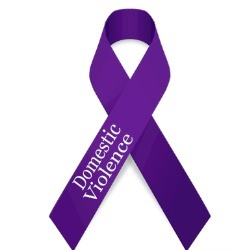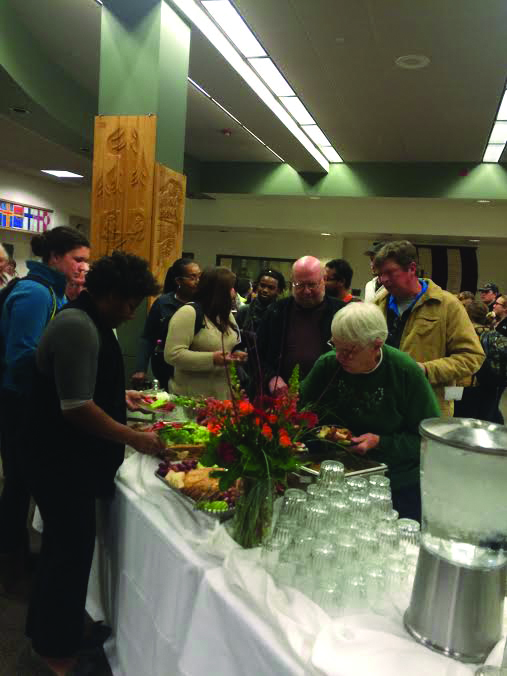by Natalie DeFord, News Writer
Students attended an Oct. 27 panel on domestic violence to wrap up Domestic Violence Awareness Month.
The five panel members were: Jonathan Grove, former head of the PLU Men’s Project; JC Pankratz, crime victim advocate from the Rainbow Center; Matty Smith, advocacy director for Rebuilding Hope!; and Nadia Vanatter, Crystal Judson Family Justice Center.
The panel defined domestic violence (DV) as the antithesis of healthy relationships. Additionally, they said DV is about power and control, and that its umbrella includes more than physical and sexual violence.
Much of DV is related to violating a person’s boundaries, which can start with small instances falling into a pattern and increasing each year.
The panelists said 1.3 million people are affected by DV each year in America. Roughly one person in four will experience DV, and that’s only reported cases.
“It’s statistically impossible not to know someone directly impacted,” Grove said.

Panelists said Pierce County DV is equivalent to that of Seattle, because Pierce County has a higher number of crimes per capita.
Students were also reminded to think about the people indirectly involved with DV cases, such as children and friends of victims.
“It’s hard to call the cops on someone you love,” Grove said. According to Grove, plenty of DV instances go unreported.
DV involves power and control but can include a wide variety of different tactics.
There are many things a perpetrator can use to control his or her partner, such as the partner’s children, financial control, intimidation, coercion and norms.
The perpetrator will use whatever works to control a person or make them fearful of what will happen if they don’t do what the perpetrator wants.
This isn’t just an issue of men controlling women, but rather a situation that can happen between any two people.
This type of relationship can be between anyone, and yet it is difficult to get people to see what it is outside of the classic male-on-female scenario.
People see DV through a narrow viewing box, which can give abusers power. This problem can make it easier for perpetrators to get away with various forms of abuse and DV that fall outside of the stereotypical category.
Marginalized communities face extra challenges, especially the LGBTQ community.
Statistics show individuals in the queer community are less likely to come forward about cases of DV.
Reporting cases of DV in non-heterosexual partnerships is especially difficult because it involves coming out to related institutions or to the police. They have to come out to people who won’t necessarily understand said Grove.
Gender makes this a bigger issue as well, and the transgender community faces extra challenges.
The LGBTQ community, JC Pankratz said, is now also feeling extra pressure to remain in good standing with new marriage equality laws.
The panel discussed rape between married couples and partners, stressing domestic violence is illegal no matter what the relationship is between people. The panelists said it’s shocking for some people to realize they still have a right to what happens to their own bodies. Contrary to what some people may believe, marriage does not make a person owned by his or her spouse, the panel said.
Panelists also found it shocking that people still do not notice men as victims of DV. “Men are victims, too” has been stressed in many schools, but the panel asked, “Why is there a ‘too’ at the end?”
The panelists discussed the concept of ‘men are victims, too’ The panelists argued that people use that term as if they are trying to justify abuse on women by saying it’s not a big deal because it happens to men too.
The panel said that there is no need to invalidate females as victims and people just need to realize that DV can happen to anyone.
About 6 percent of men are victims of DV on a national scale, panelists said.
Added fears for men can stem from hyper-masculinity.
Men won’t always identify as victims and they are usually aware of other men’s acts of violence. Wanting to be seen as masculine, men will often keep quiet.
The panelists encouraged people to contact The Sexual Assault Center for Pierce County which has a 24-hour Crisis, Information and Referral line:
1-800-756-7273, or in the local Tacoma area:
(253) 474-7273.

















